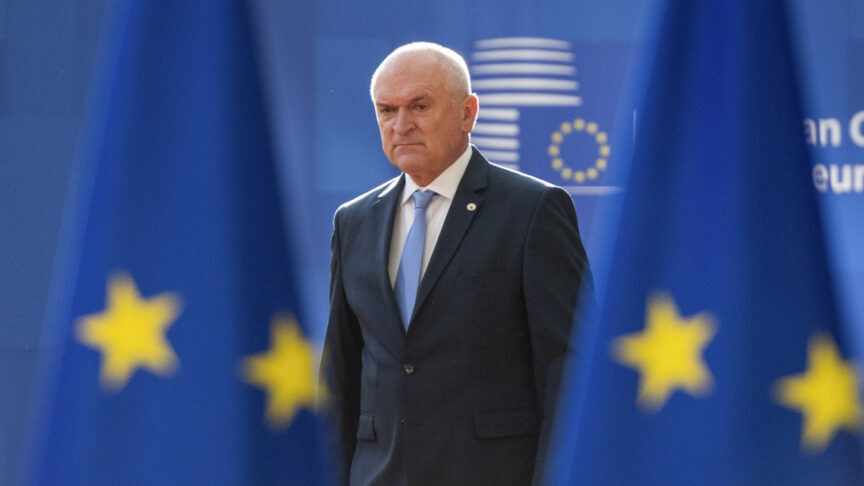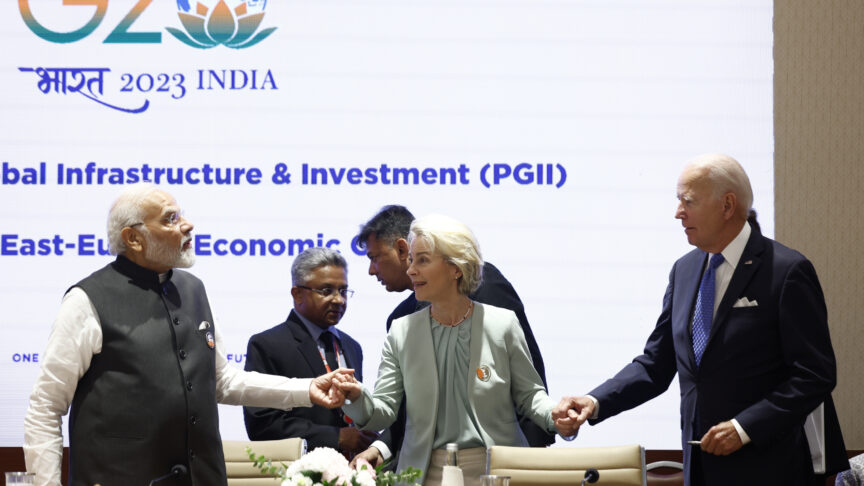The making of a strategic shambles
The West tried to help in Darfur and Chad. But by having to cooperate with governments responsible for much of the suffering, EU and UN troops ended up pawns in struggles they could not stop.
For seven years, activists have called for help for the
suffering in Darfur and Chad.
After this month’s controversial elections in Sudan, it is time to assess what
has been achieved.
We have sent aid and peacekeepers, and they have saved lives, but at what cost?
The West and United Nations have aided two brutal governments, thereby compromising
on human rights. EU and UN troops have been pawns in struggles they cannot
stop. It is a strategic shambles.
That may soon be conveniently forgotten. Attention is turning to South Sudan, which may vote to secede from the north (and
turn violent) in 2011. Darfur is still volatile
– earlier in the month, the EU pulled election observers out of the region for
security reasons – but is no longer the West’s priority. Chad has
declared it does not need UN peacekeepers anymore.
It would be a mistake to move on without looking back. It is fashionable to say
that Europeans (and even the US)
can no longer solve foreign crises, only manage their effects. Chad and Darfur
show how conflict management can go extremely wrong.
When news of atrocities in Darfur supported by
the Sudanese government first emerged, some European leaders favoured
intervening directly. Tony Blair reportedly considered sending in British
troops. On entering the Quai d’Orsay, Bernard Kouchner asked if French forces
could open humanitarian corridors in Sudan. The answer was ‘No’.
The main initial effort was humanitarian. UN agencies and non-governmental
organisations set up an aid system that now delivers assistance to 2.7 million
displaced people, half the province’s population. They have done an impressive
job tackling disease and malnutrition.
Yet the internationally funded aid system looks dangerously likely to become
permanent.
Immigrants from elsewhere in Sudan
and Africa, supported by the government, have
occupied land the displaced left. Thousands of young Darfuris are growing up as
internal exiles in aid camps – or are stuck in Chad – at the expense of the UN and
Western donors.
The humanitarian effort in Darfur has thus helped consolidate Sudan’s
campaign to uproot its people. The peacekeeping effort has done little better.
The US and European governments funded first the African Union and then the UN
to deploy troops to Darfur, yet many of these soldiers have been less
well-armed than the militias around them.
In 2008, the EU sent peacekeepers of its own to help protect aid workers in Chad. It was
also a small deterrent against rebels – backed by Sudan – trying to overthrow the
corrupt, nasty government of Idriss Déby. The mission and a hapless UN
follow-on force gave Déby breathing space to bargain with Sudan under the watchful eye of Libya’s Muammar
Qaddafi.
Qaddafi, the rare winner in this mess, owes the EU a big thank you. Déby has
announced that he wants the UN off his land. Behind the scenes, his government
has demanded increased aid money as the price for letting it stay. UN officials
have refused, but have done the regime many small favours, like not reporting on
some human-rights abuses – to little avail. France may still persuade Déby to
back down.
Meanwhile, 60 UN peacekeepers in Darfur were
recently taken hostage and disarmed. Western governments that pay for the force
will soon ask if it is worth its $2 billion (£1.4bn) or more annual price-tag.
The UN is sending some of its best negotiators and mission leaders to Sudan to try to
get matters under some sort of control before the south secedes.
EU leaders have no choice but to back these efforts. Earlier this month,
Catherine Ashton, the EU’s foreign policy chief, urged Sudan’s
“parties and stakeholders” to ensure “satisfactory
conditions” for the elections. The US is also supportive.
We tried to end or, at least, mitigate the violence in Darfur and Chad. We have
ended up co-operating with the governments responsible for much of it.
That’s what some like to call ‘conflict management’.
This piece was first published by European Voice.
The European Council on Foreign Relations does not take collective positions. ECFR publications only represent the views of their individual authors.


